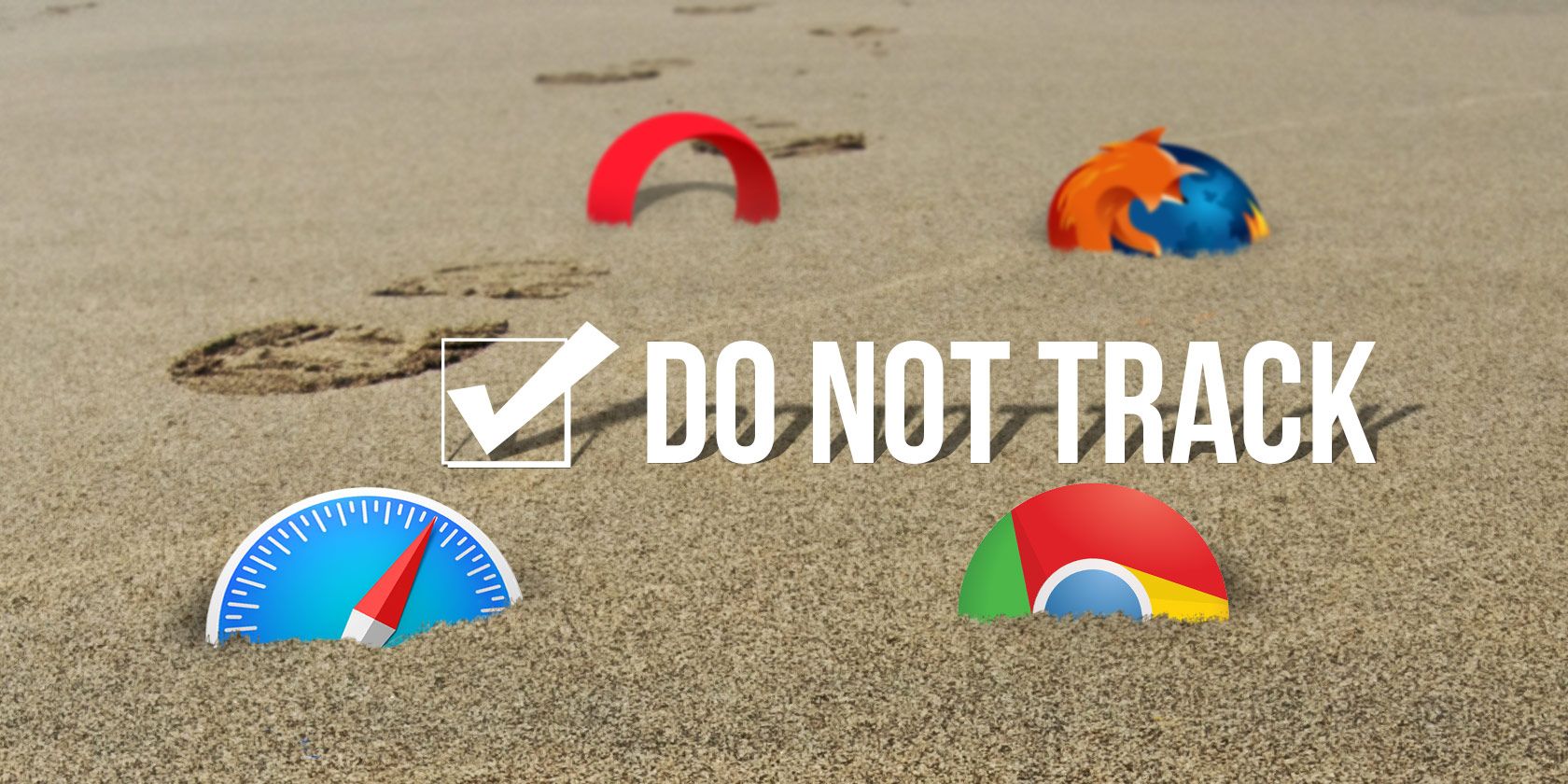All of the major web browsers offer a Do Not Track feature which lets websites know that you don't want to be tracked. It seems like a great idea, but does it protect your privacy?
Let's take a look at the evidence provided for us to decide for ourselves.
What Is "Do Not Track"?
According to DoNotTrack.us:
"Do Not Track is a technology and policy proposal that enables users to opt out of tracking by websites they do not visit, including analytics services, advertising networks, and social platforms."
When you tick the Do Not Track box in your browser's settings, your browser adds an HTTP header to all of your web traffic. This lets websites know that you don't want them to track you. You don't wish for tracking cookies from analytics or advertising networks, and you don't want information about your browsing transmitted to social networks.
Ideally, this means you wouldn't receive browser cookies that enable ad retargeting or the mass collection of data about your browsing habits. Unfortunately, as you may have guessed, this HTTP header can, in theory, be ignored by the website. Nothing is stopping an organization from tracking you, even after you ask nicely.
As such, let's explore whether or not organizations are allowed to ignore your request not to track you.
Is "Do Not Track" Legally Enforced?
In a perfect world, any website receiving web traffic with a Do Not Track header would do just that: not track the user. The idea to make it legally binding has been proposed to the Federal Trade Commission (FTC) several times.
Deciding not to get officially involved in the privacy of users, the FTC instead tasked the World Wide Web Consortium (W3C) to work out the details of the Do Not Track technology. Unfortunately, the W3C includes Adobe, Facebook, Google, eBay, Netflix, PayPal, Kaiser Permanente, Twitter, Yahoo!, and a couple of hundred other organizations, many of which are interested in collecting your data.
As a result, the case of making "Do Not Track" a legally binding requirement fizzled out. Businesses could freely disregard the Do Not Track setting without fear of legal repercussion. As such, businesses were free to choose if they wanted to respect it or not.
Does "Do Not Track" Work?
These days, only a small number of websites respect Do Not Track. The rest will ignore the request, and some will even show you privacy-related advertisements in the assumption that it's relevant to your interests.
As a result, the tech world's faith in Do Not Track is slowly diminishing. When Internet Explorer 10 was released, Microsoft enabled Do Not Track in the browser by default. They stated that users should make a conscious decision to share information with advertisers, and not the other way around.
The Digital Advertising Alliance made a fuss. As a result, Microsoft gave in to the demands; as of Windows 10, users now have to turn on the feature themselves. Now their privacy statement says:
"Because there is not yet a common understanding of how to interpret the [Do Not Track] signal, Microsoft services do not currently respond to browser [Do Not Track] signals."
Online service providers commonly used this as a reason to not respect the setting. No standard or law backs up Do Not Track, and as such, there is no incentive for anyone to use it.
Although some companies---including, Twitter, Medium, Reddit, and Pinterest---have committed to respecting users' Do Not Track requests, most advertisers ignore it. They cite a lack of an implemented standard, while also not putting effort into actually creating one.
As a result, the "Do Not Track" option in your browser doesn't do much. While some companies do honor it, it has no legally binding requirements to back it up. Companies that want to track you can and will ignore the tag and harvest your information regardless.
How to Protect Your Online Browser Privacy
Do Not Track is a great idea, but the lack of solid rules and the broader industry decision to ignore it was its downfall. Despite this, there are other options you can use to protect your privacy.
Set Your Browser to Reject Third-Party Cookies
First-party cookies are from the websites you visit, and they can be beneficial. Third-party cookies, however, come from advertisers and social networks and track you around the internet.
Opt Out of as Many Tracking Services as You Can
There are a lot of them, and many don't offer an opt-out solution, but you can opt-out of the big ones, like Facebook and Google. You can also go to NetworkAdvertising.org/choices to opt-out of ad networks, but the effectiveness of this is questionable.
Use Browser Extensions to Limit Tracking
Several browser extensions are available that protect you from third-party tracking. Disconnect.me is probably your best bet, though you should be able to find some others.
Use a Privacy-Focused Browser
Some browsers, like Epic and Dragon, commit to your privacy. Others, like Tor, which we've discussed at length, aims to absolutely maximize privacy.
For a full explanation of avoiding internet surveillance, check out "Avoiding internet Surveillance: The Complete Guide." It has everything a beginner and intermediate privacy enthusiast would need to beef up their security.
Take Online Privacy Into Your Own Hands
Do Not Track is a great idea, but when it comes down it, the technology has no bite. Companies can---and usually do---choose to ignore it and face no consequences for doing so.
Despite this, you should enable the setting for the few sites that honor the setting. If you want to keep organizations from tracking you across the internet, however, you'll need to do more than send a polite request. You'll need to take your privacy into your own hands with more direct measures.
Ready to take control of your privacy? Time to subscribe to one of the best VPN services for some ideas.



